Siân Bentley and Isaac Johnston have spent the last year of their lives working as apprentice Conservation Officers at Cumbria Wildlife Trust.
It's been a busy year for the young environmentalists – but what exactly do their jobs involve, what challenges have they faced, what is their favourite Lake District view, and, most importantly, if they could be any British animal, what would they be?
BBC Countryfile Magazine spoke to Siân and Isaac to find out.
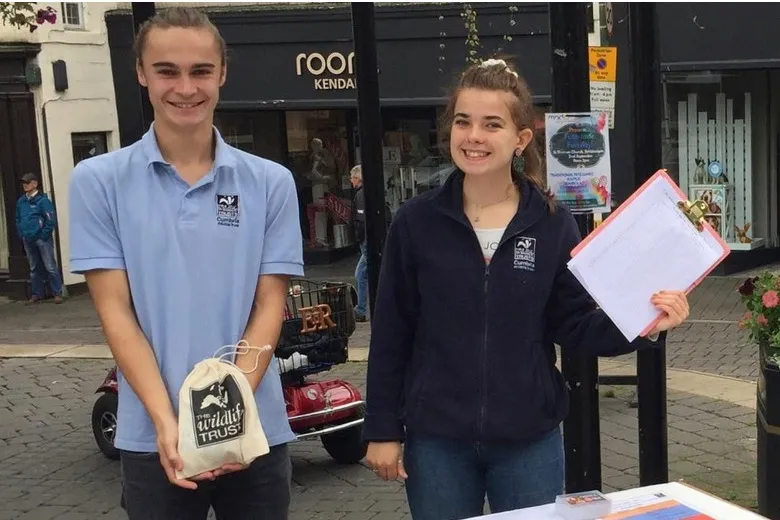
How did you first get involved with Cumbria Wildlife Trust?
Isaac: My first involvement with Cumbria Wildlife Trust came at the age of 16. To give us a chance to experience life in the workplace, my school organised a variety of work experience opportunities. I saw the advertisement and knew that’s exactly what I wanted to do. The week involved working with all departments at the Trust, from the nature reserves team to gardening at our head office. I rated the week 5/5 in my feedback form and couldn’t wait to return.
Siân: I knew about Cumbria Wildlife Trust but had never got involved with them before. I had just completed my A Levels when I applied for the apprenticeship. I wasn’t ready to go to university and knew what my passions were – I needed to do something worthwhile. So when I heard about this apprenticeship and what it entailed, I was sure that's what I wanted to do next.
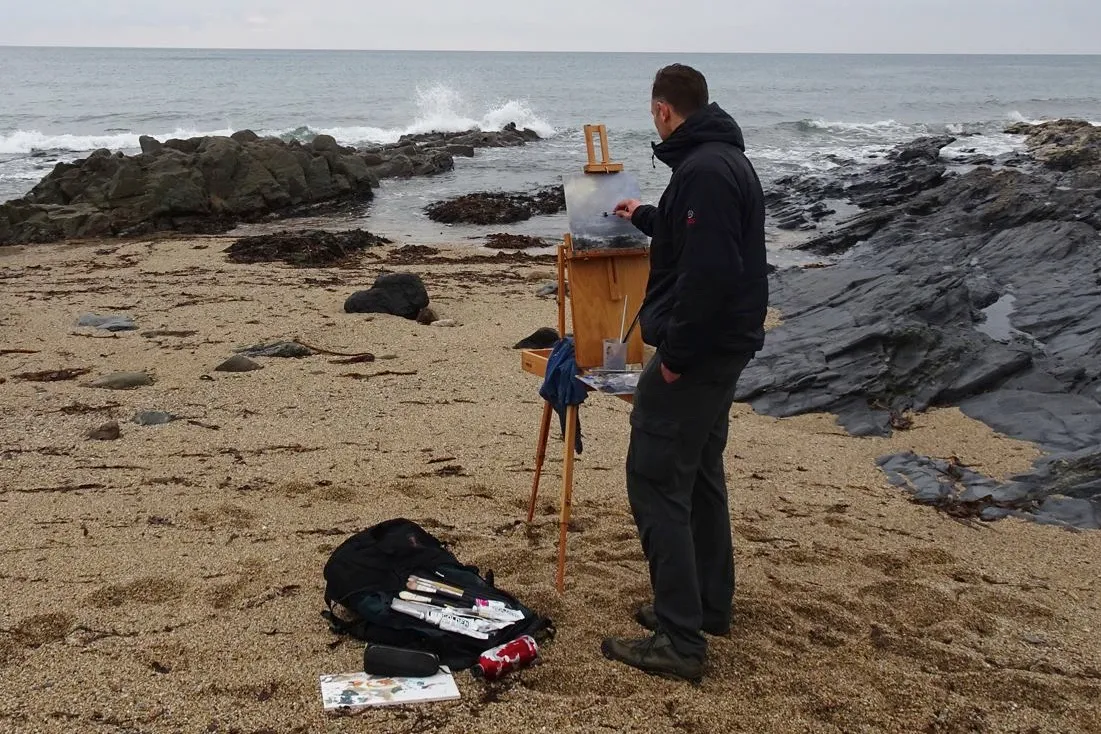
What does the average day as an apprentice Conservation Officer involve?
Isaac: There is no such thing as an average day with our job. The role is so varied – I could be surveying seals one day and doing a quad bike course the next. We have office days where we reply to wildlife enquires from the public, type up minutes from meetings, organise our next outings and a multitude of other jobs.
Siân: We get asked this a lot and it’s actually very difficult to provide a succinct answer. I don’t think we’ll be able to find another job with this much variety again! Last week I was at a conference about ways to make boggy land pay. Then I was at South Walney Nature Reserve surveying a colony of grey seals – I manage these surveys and coordinate our volunteers as part of my role here. I've taught groups about how to take their own rocky shore species surveys, edited promotional videos, and am attending a local flood group meeting to talk about natural flood defences.
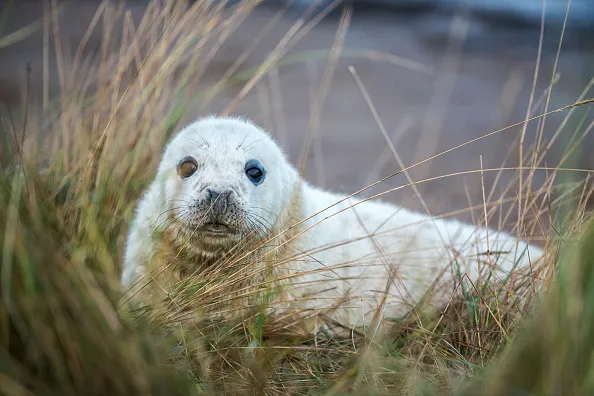
What’s been your favourite project while working with Cumbria Wildlife Trust?
Isaac: It has to be all the work I’ve done with the drone. This very high tech piece of kit is the cutting edge of nature conservation technology. We use it to fly over large inaccessible areas such as peatland and wetland sites, taking aerial photos as we go. These images are then stitched together using online software to produce one large, highly detailed map. This has been a very successful part of my job and as a result I have started doing similar work for neighbouring organisations, such as United Utilities.
Siân: I have recently taken over a political role in Cumbria Wildlife Trust which involves lobbying the government under the Greener UK Alliance. This includes meetings with Cumbria’s MPs, engaging the public, letter writing campaigns and social media work. The current political climate means there is a lot of scope for improving or changing our environmental legislation. This is something I have always been interested in.
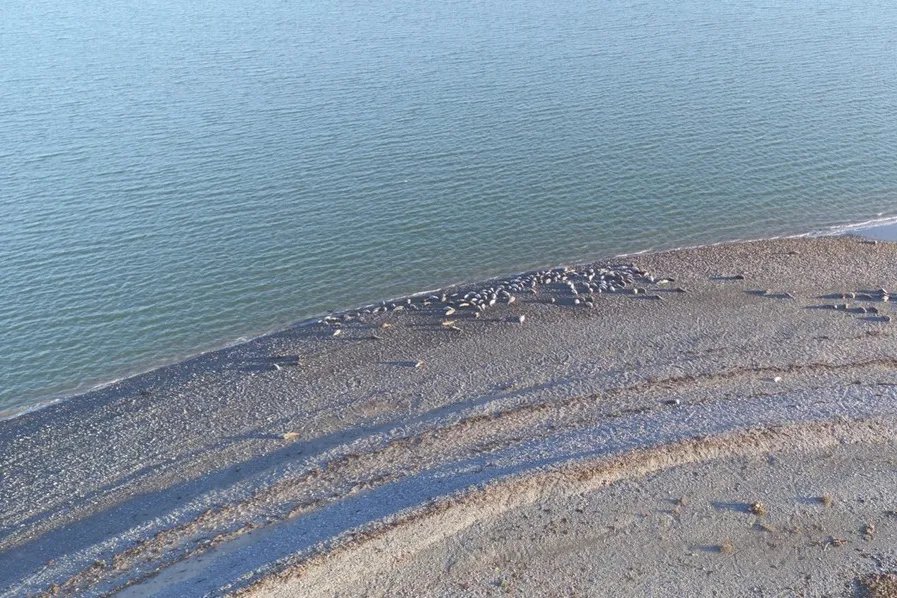
What skills have you picked up while working with Cumbria Wildlife Trust?
Isaac: One of the great perks of working for Cumbria Wildlife Trust is the range of training courses I’ve attended. I’ve looked at everything from spiders and birds to shore creatures, and have loved each and every course I’ve been on. I’ve also been trained in outdoor first aid and how to use a brush-cutter. These are hugely beneficial skills in the long run as I get a certificate which I can take forward to my next job.
Siân: Seeing the inside workings of an environmental conservation NGO has been so valuable. Plus, my confidence has grown a lot, as has my ability to carry out tasks and work towards a deadline, write articles, conduct and lead surveys and run workshops and events. I have had a lot of networking opportunities, and have appeared on radio and TV. Even learning the seemingly mundane parts of office life (that aren’t at all related to wildlife!), like writing minutes, is going to be really useful in years to come.
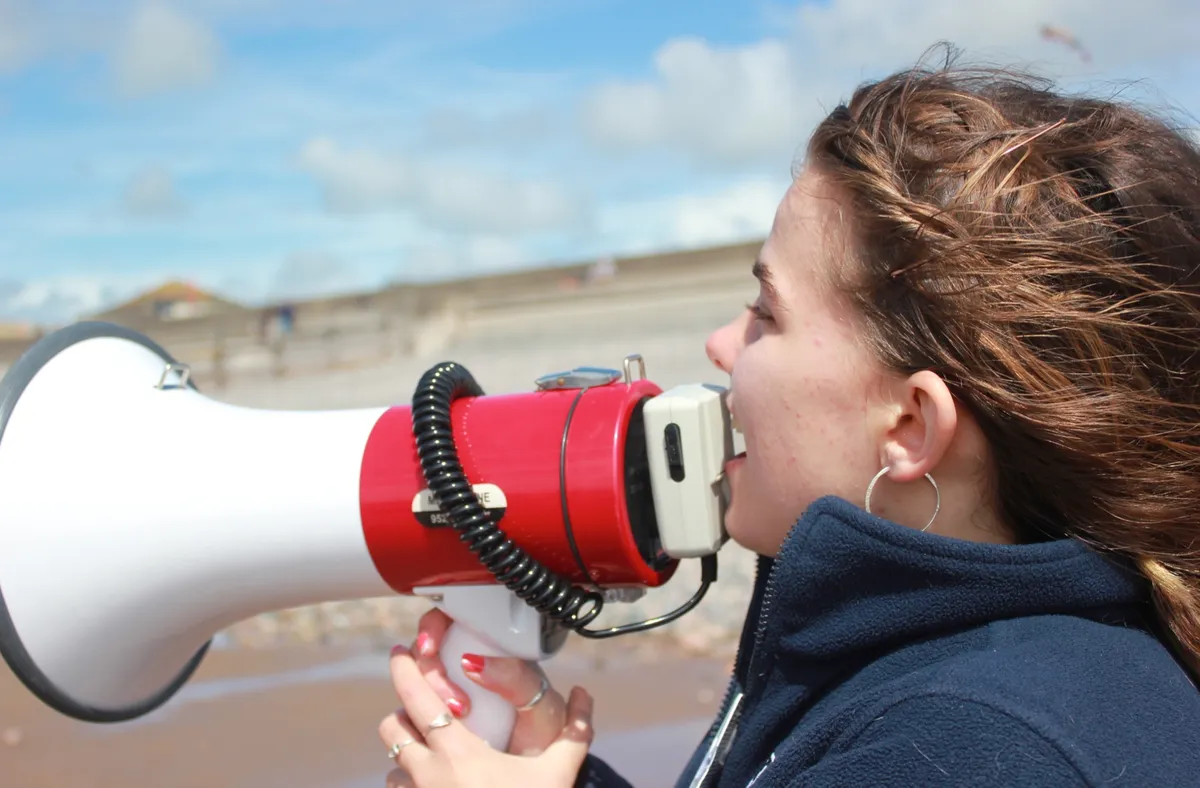
What’s the biggest challenge facing conservation in the UK?
Isaac: Certainly one of the biggest challenges facing conservation in the UK is plastic pollution. This is especially prevalent in the marine sector and is a worldwide problem. Plastics have a tremendous effect on the marine life off the coast of the UK; 95% of Irish Sea fulmar, a cliff-breeding seabird, were found to have ingested plastic in a recent study.
Get involved with a beach clean near you.
Siân: The conflict between conservation and agriculture is something that I have become more and more aware of since working in the sector. This conflict is well-publicised in places such as the Amazon rainforest but is often hushed-up or seen as taboo in the UK. I know I’m not the only one who thinks it’s absolutely imperative that we start addressing this issue and that the two sectors can begin working together.
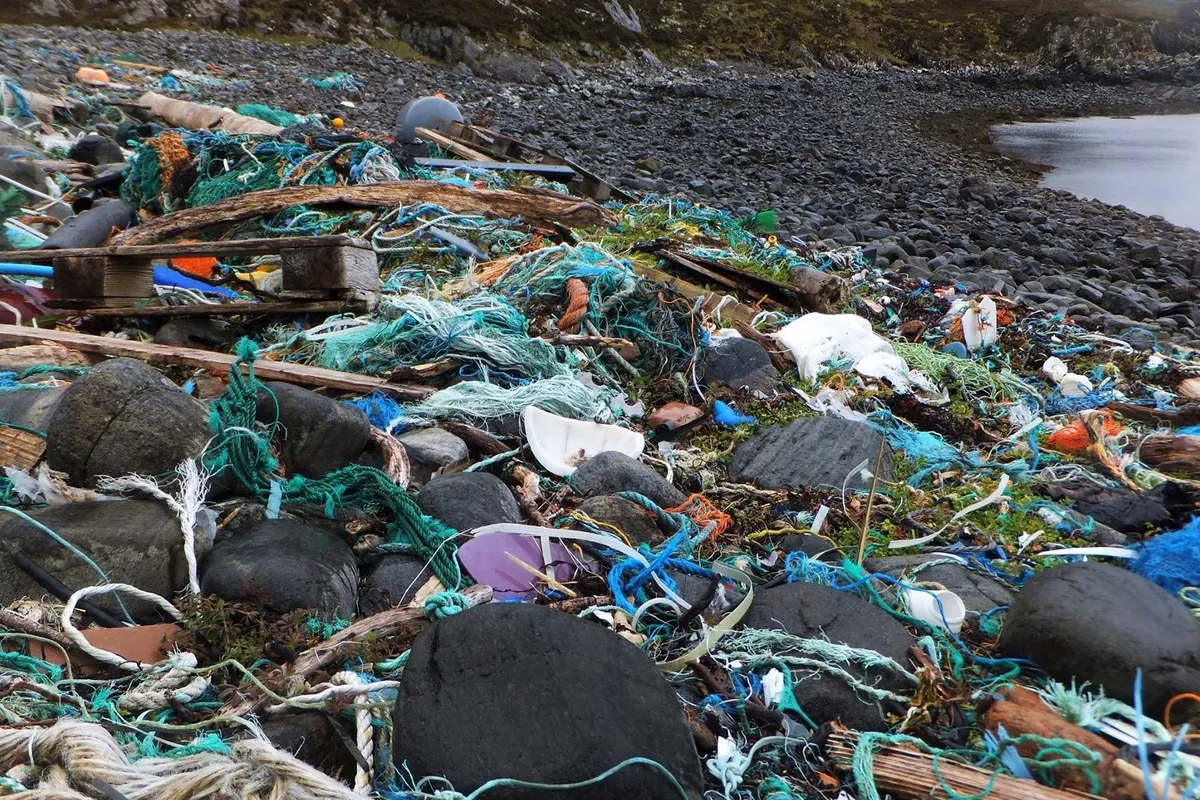
What has been your most amazing wildlife experience while working with Cumbria Wildlife Trust?
Isaac: It’s very difficult to choose from so many incredible encounters I’ve had on this job – I’ve come within a few feet of a new-born seal, seen starling murmurations, watched a family of ospreys grow and fledge and visited some of the best nature reserves Cumbria has to offer.
Siân: I have been metres away from a one-day-old fluffy seal pup, heard baby beavers whine at dusk on a huge nature reserve in Estonia and, on the same reserve, had an incredible encounter with two lost elk calves. (There seems to be a bit of a theme!) All of these completely took my breath away – definitely ‘pinch yourself’ moments for me!
If you were a British animal, what would you be?
Isaac: I’d have to be a goshawk. There’s just something so exciting about this mysterious bird that captivates me. They’re rarely seen in the UK, where there are 430 breeding pairs. They live in dense forest and are vicious hunters, taking anything from squirrels to crows.
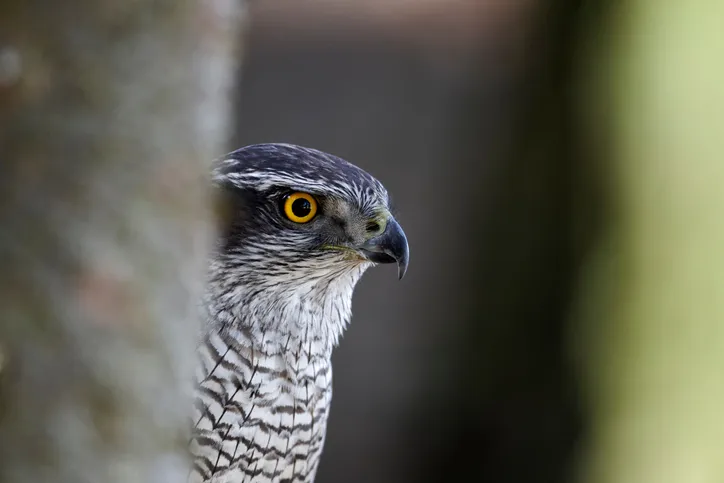
Siân: Fortnightly, I write the nature column for a couple of Cumbrian newspapers and recently wrote about pygmy shrews. They are so tiny but so fierce and live such fast-paced lives. They really made an impression on me. I think I’d do well as a pygmy shrew.
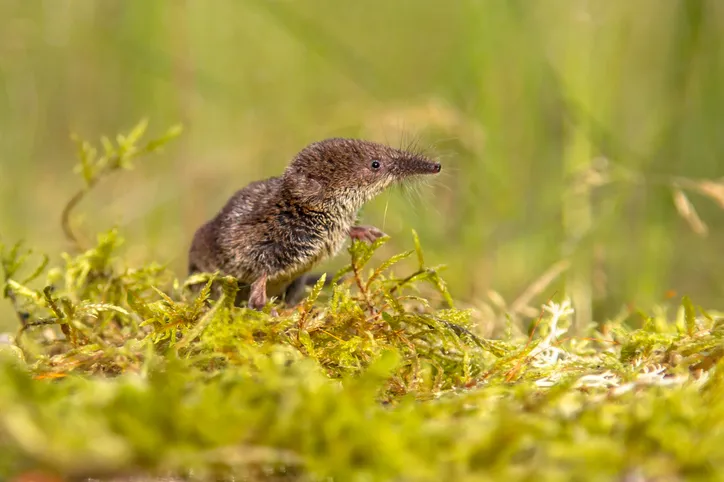
In your opinion, where is Cumbria’s best view?
Isaac: In my opinion, the best views in Cumbria can be found in the central Lake District. There are hundreds of peaks and fells to climb, rewarding you with breathtaking views over some of the most picturesque landscapes in the country. The peaks and crests stretch as far as the eye can see and, on a few of them, it’s possible to make out Blackpool tower over 50 miles away down the coast.
Siân: I’m always enchanted by the view looking across the bottom of Thirlmere. The hills on the opposite bank are completely wooded, which is unusual in the Lakes. That, paired with the remote-looking islands in the middle of the lake, give it a very wild feel.
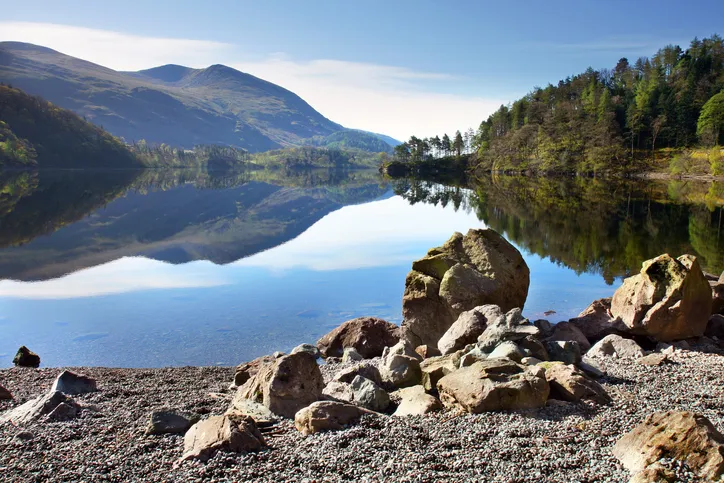
What advice can you offer to young people wanting to get involved with conservation?
Isaac: Get involved with volunteering opportunities. I’ve found this to be the best way of meeting people and getting your foot in the door with environmental organisations and charities. This shows you’re willing, committed and passionate about the environment.
Siân: I set up a completely student-led environmental group in my sixth form. I was kind of blindly making my way through, as I had no experience whatsoever leading a group, but I think we made a lasting impact. I’d say trust yourself and have confidence in what you believe in, but always be willing to find out you’re wrong, make mistakes and change your mind.
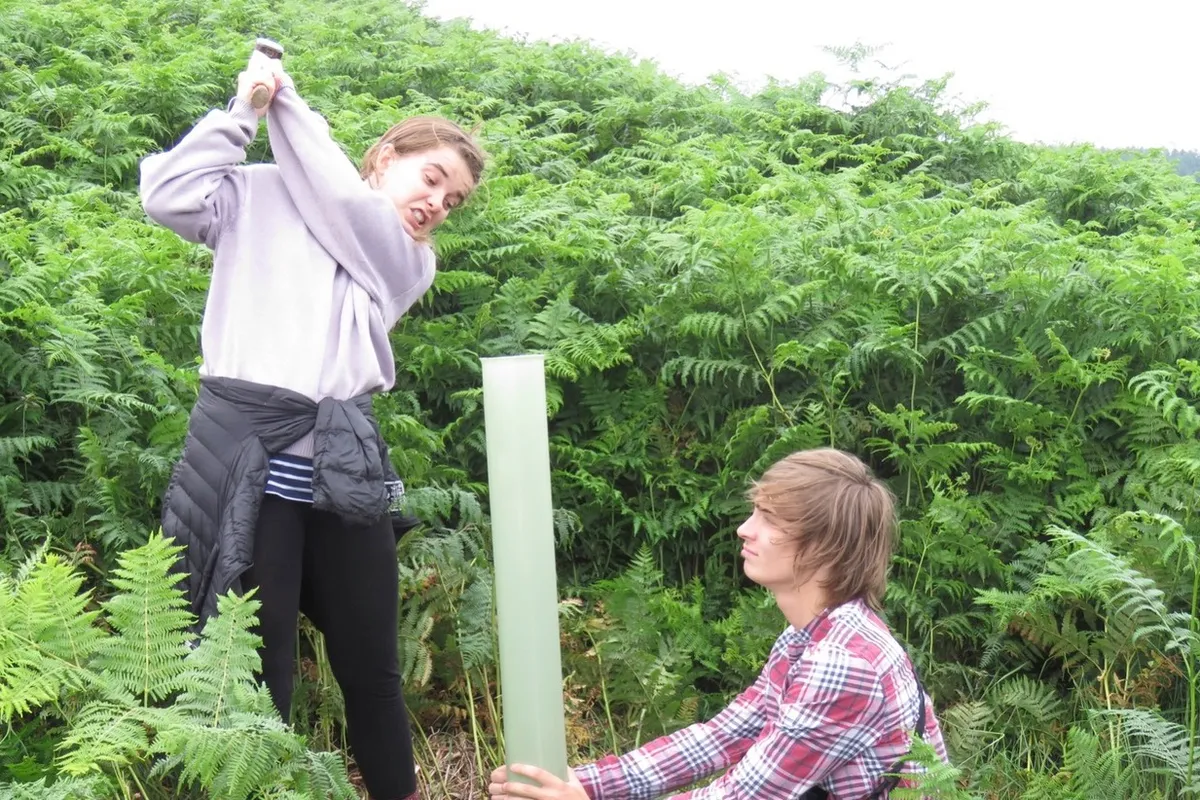
What do you plan to do next?
Isaac: I’m not 100% sure what my next step will be yet. This job has opened so many doors – I could go on to do a number of things. Number one on my list is doing some volunteering for the RSPB. These roles often come with accommodation on site and are in some of the most beautiful nature reserves in the country. I would gain experience working with other volunteers, helping with reserves maintenance, conducting surveys, communicating with the public and so much more.
Siân: I’m applying for university at the moment. I’m also in the process of setting up a blog which I hope to carry through from this job to university.
Would you like to get involved with Cumbria Wildlife Trust?
Sian and Isaac’s conservation apprenticeships were made possible by the Yorkshire Dales Millennium Trust (YDMT) Green Futures programme, which aims to empower and support the ambitious and capable young people of Yorkshire and Lancashire to become more involved, aware and connected to the fantastic natural environment that’s on their doorstep.
Cumbria Wildlife Trust is committed to encouraging the next generation of young conservationists. They have supported three conservation apprentices and 24 marine trainees, and each year offer work placements to students at the University of Cumbria. Find out how you can get involved here.
Or, see what opportunities are on offer near you by visiting the jobs page on your local Wildlife Trust's website.
